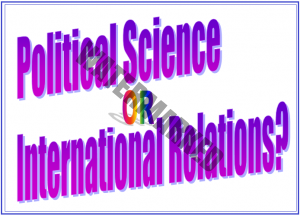ESSAY: The pursuit of equity in an unequal world: a futile quest?
Essay Outline:
I. Introduction
A. Brief overview of the concepts of equity and inequality
B. Thesis statement:
Despite the existing global inequalities, pursuing equity is not a futile quest; it’s a necessity to ensure the sustainability and progress of society.
II. Exposition (Explanation of the topic)
A. Definition and understanding of the term ‘equity’
B. The different forms of inequality in the world today
1. Economic Inequality
2. Social Inequality
3. Political Inequality
C. The interconnectedness between equity and inequality
III. Argumentation (Defending the thesis)
A. Arguments against the futility of the pursuit of equity
1. The inherent human right to fairness and dignity
2. The ethical need for equality
B. Case studies to demonstrate successful attempts at achieving equity
1. Nordic countries’ success in reducing income inequality
2. New Zealand’s strides in gender equity
C. Counter-arguments: the challenges and complexities in pursuing equity
1. Systemic barriers
2. Socio-cultural resistance
D. Rebuttal to counter-arguments
1. The role of systemic change and policy reform
2. The importance of public education and discourse
IV. Description (Describing the current state of affairs of the topic)
A. The current state of global inequality
B. Existing efforts in pursuing equity and their outcomes
C. Reflection on the complex nature of equity and inequality
V. Narration (Important Narrations related to the topic)
A. Personal anecdotes or hypothetical scenarios highlighting the impact of inequity
B. Stories of societies or individuals who’ve made significant strides in pursuit of equity
VI. Conclusion
A. Recap of the main points and thesis
B. Final thoughts on why the pursuit of equity, though challenging, is not a futile quest
C. Call to action encouraging further efforts towards achieving global equity
ESSAY on “The pursuit of equity in an unequal world: a futile quest?”
I. Introduction
Equity and inequality, two concepts that stand diametrically opposed to each other, are central to discussions concerning societal progress and human welfare. Equity, defined as the fair treatment, access, opportunity, and advancement for all people, while simultaneously striving to identify and eliminate barriers that prevent the full participation of certain groups, is seen as an aspirational goal for societies. In contrast, inequality — in income, opportunities, or rights — poses a challenge to societal harmony and human dignity. The existing global inequalities in wealth, power, and resources raise a poignant question: is the pursuit of equity in such an unequal world a futile quest? This essay argues that, despite the prevailing inequalities, the pursuit of equity is far from futile; rather, it is a necessary journey to ensure the progress, stability, and sustainability of our societies.
II. Exposition
To engage in a meaningful discussion on the matter, one must first clarify the terms at hand. As previously mentioned, ‘equity’ encapsulates more than just equality. It involves ensuring that individuals and groups have fair access to opportunities and resources, taking into account their unique circumstances and needs. It demands an understanding of the underlying social barriers that prevent individuals from realizing their potential and works towards eliminating these barriers.
On the other hand, ‘inequality’ is the uneven distribution of resources, opportunities, and power in society. Inequality takes many forms, including economic, social, and political inequality.
- Economic inequality often refers to the gap in income and wealth between different groups in society. It is frequently represented through the difference between the rich and the poor.
- Social inequality involves disparities in various social dimensions such as education, health, and housing. It often relates to an individual’s social class or status and can be influenced by factors such as gender, race, or disability.
- Political inequality exists when individuals or groups have unequal influence over political decisions and policies. This can be due to a lack of representation in political institutions or unequal access to political resources.
There is an intricate and multifaceted relationship between equity and inequality. As the pursuit of equity aims to rectify instances of systemic inequality, it becomes impossible to advocate for the former without recognizing and addressing the latter.
III. Argumentation
Advocates of equity see the pursuit of fairness and justice as far from futile for several reasons.
Firstly, equity is tied to the inherent human right to fairness and dignity. Every individual, regardless of their socio-economic status, race, gender, or ethnicity, should have an equal opportunity to thrive. The Universal Declaration of Human Rights clearly states that everyone is entitled to rights and freedoms without any kind of discrimination. This is the bedrock of social justice and thus, the quest for equity.
Secondly, there is an ethical necessity for equity. A society that fosters vast inequalities is inherently unstable and unsustainable. The ripple effects of inequality can lead to increased crime, reduced societal cohesion, and decreased overall well-being. Therefore, equity isn’t just about fairness — it’s about creating a sustainable, peaceful, and prosperous society.
Let’s take a look at a couple of examples where attempts to attain equity have yielded positive results:
- Nordic countries, like Norway and Denmark, have made considerable strides in reducing income inequality. They’ve achieved this through robust welfare states, progressive tax systems, and policies ensuring labor market inclusion. This has not only minimized the wealth gap but also contributed to higher standards of living and happiness among their citizens.
- New Zealand has set global standards in terms of gender equity. With policies encouraging equal pay, political representation, and societal participation, New Zealand stands as a testament to the fact that achieving equity, while challenging, is not impossible.
However, it would be naive to assume that the pursuit of equity is without its challenges. Systemic barriers such as discriminatory laws or policies, unequal distribution of resources, and socio-cultural resistance often make the path to equity a steep climb.
Yet, these challenges do not render the quest for equity futile. Instead, they underscore the need for systemic change and policy reform. Equity isn’t achieved overnight — it requires consistent effort, time, and commitment. It is also where the crucial role of public education and discourse comes in. By fostering a collective understanding of equity and its importance, societies can catalyze the necessary changes to promote fairness and inclusivity.
IV. Description
The current state of global inequality is rather grim. According to the World Bank, the global Gini coefficient, a measure of income inequality, stood at around 0.63 as of 2021, where 0 represents perfect equality and 1 represents perfect inequality. Furthermore, disparities in wealth are even starker, with just 1% of the world’s population owning more than half of its total wealth.
On the social front, inequalities persist in terms of education, health, and gender. For instance, UNESCO reports that over 258 million children and youth do not attend school, and the majority of these are from low-income countries. Additionally, according to the World Health Organization, life expectancy can vary as much as 20 years between the poorest and richest countries.
Despite these stark figures, it’s crucial to acknowledge the significant strides that have been made in the pursuit of equity. There has been global progress in reducing extreme poverty, expanding access to education, improving health outcomes, and promoting gender equity. For instance, the proportion of the world’s population living in extreme poverty has dropped from nearly 36% in 1990 to less than 10% today.
However, the pace of change varies widely across regions and within countries, pointing to the complex and multifaceted nature of equity and inequality. The uneven progress underscores the need for nuanced, context-specific strategies to promote equity.
V. Narration
Imagine a world where birthplace, gender, or socio-economic status did not dictate one’s life trajectory — a world where every individual, regardless of their circumstances, had an equal shot at success. This is the world that equity envisions.
Take, for instance, the story of Malala Yousafzai, a Pakistani activist for female education and the youngest Nobel laureate. Born in a region where girls were often denied education, Malala’s pursuit of equity in education led not only to global recognition but more importantly, significant changes in the perception and importance of girls’ education. Her story shows how the quest for equity, no matter how challenging, can have profound effects on individuals and society.
Another story that resonates with the journey towards equity is that of the city of Medellin in Colombia. Once notorious for its crime rates and considered one of the most dangerous cities in the world, Medellin undertook a transformative journey focused on equity. By investing in education, public spaces, and transportation to connect poorer hillside neighborhoods to the city center, Medellin dramatically reduced crime rates, improved living standards, and won the Lee Kuan Yew World City Prize in 2016. These examples remind us that the quest for equity, while arduous, can yield transformative results.
VI. Conclusion
Equity and inequality are two sides of the same coin, representing the aspirations and challenges faced by societies worldwide. While the existing global inequalities in wealth, power, and resources are daunting, the pursuit of equity is far from a futile quest. Rather, it is a necessary journey toward ensuring the progress, stability, and sustainability of our societies.
The examples of Nordic countries and New Zealand exemplify that equitable societies are achievable with thoughtful policies, robust welfare systems, and a commitment to justice and fairness. The challenges faced in this pursuit, such as systemic barriers and socio-cultural resistance, do not signify the futility of the quest but underscore the need for systemic change, policy reform, and a collective commitment to equity.
In the face of rising inequalities exacerbated by global crises such as climate change and pandemics, the pursuit of equity becomes even more critical. Achieving equity requires a rethinking of our social structures, a reordering of our priorities, and a commitment to ensuring fairness and justice for all.
Stories like those of Malala Yousafzai and the city of Medellin serve as reminders of the transformative power of equity. They remind us that the pursuit of equity is not just about rectifying statistical disparities — it is about changing lives, improving societal health, and building a better world for everyone.
In conclusion, the pursuit of equity in an unequal world is not a futile quest. It is an aspirational goal that we must collectively commit to and work towards. It is a testament to our potential as human beings to create fair, just, and inclusive societies. The path towards equity is undoubtedly challenging, but every step taken in this direction brings us closer to a world where every individual can reach their full potential, free from the constraints of systemic inequalities.
Thus, the pursuit of equity should not be viewed as a futile quest, but rather as a necessary journey — a journey towards creating a world marked by fairness, justice, and equal opportunity for all. Despite the many challenges and setbacks we may encounter along the way, the pursuit of equity remains a noble and necessary endeavor. As we continue on this path, let us remember that the pursuit of equity is not just a quest for a more equal world, but for a better one.


